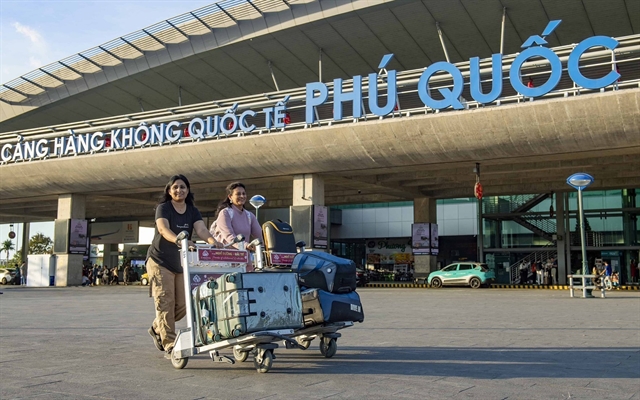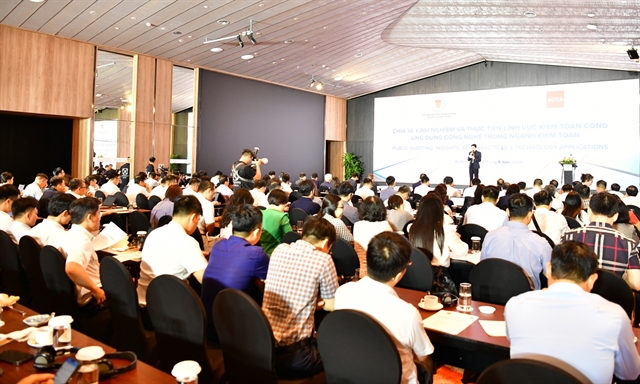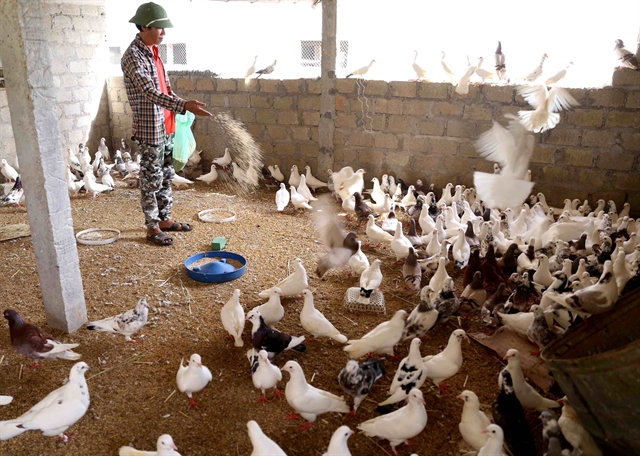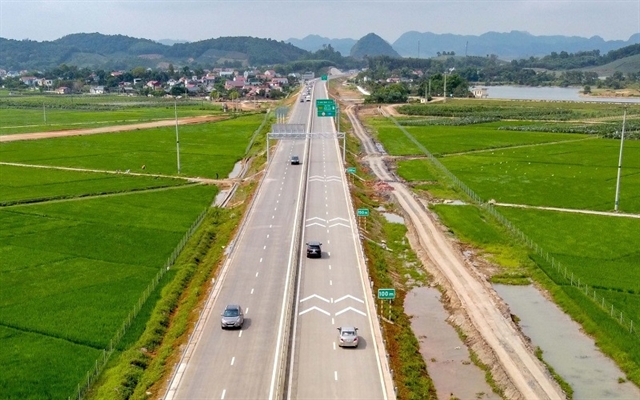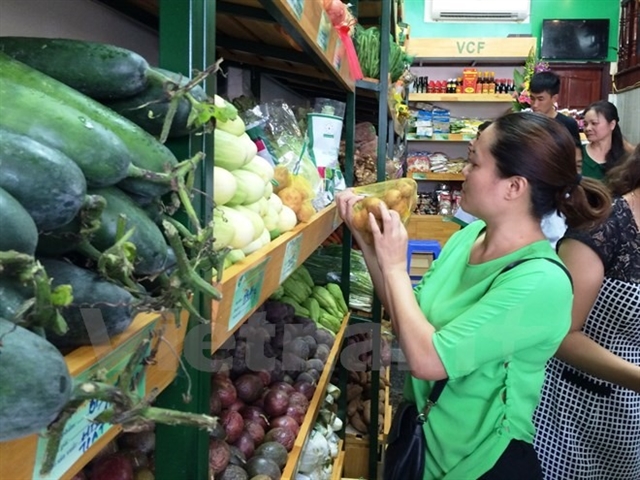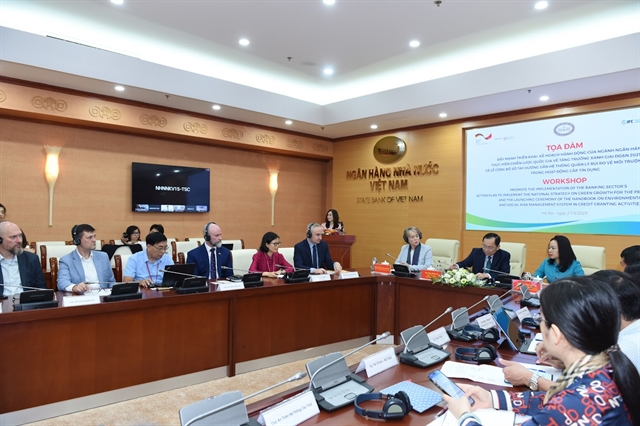
 |
| Inside a Big C Thăng Long supermarket. In the first two months of 2025, the VAT reductions made retail sales of goods and services up 9.4 per cent year on year. — VNA/VNS Photo |
HÀ NỘI — Many National Assembly (NA) deputies, during the NA's group discussions on Wednesday, voiced support for the Government's proposal to extend the 2 per cent value added tax (VAT) reduction through the end of 2026.
The aim is to stimulate domestic consumption, support businesses and sustain economic growth amid ongoing domestic and global challenges.
Deputy Nguyễn Thị Quyền Thanh emphasised that, in light of persistent global and domestic economic uncertainties, the VAT reduction policy remains a crucial tool. It fosters domestic demand, supports production and business activities, and contributes to macro-economic stability.
According to deputy Thanh, extending the policy through 2026 and broadening its scope to include more beneficiaries align with the Government's 2025 socio-economic targets, including the ambitious 8 per cent GDP growth target for this year. This would lay a foundation for double-digit growth from 2026 to 2030.
"The VAT cut not only lowers the cost of goods and services and boosts business competitiveness, but it also directly benefits consumers by reducing their cost of living – especially important while incomes remain below pre-pandemic levels and businesses face continued challenges," Thanh noted.
Data from the past three years showed the policy’s effectiveness.
In 2022, VAT reductions saved businesses and consumers around VNĐ51.4 trillion and contributed to a nearly 20 per cent increase in total retail sales goods and services compared to 2021.
In 2023, this policy continued to support VNĐ23.4 trillion in tax relief and helped boost consumption by nearly 10 per cent.
While, the VAT reduction in 2024 helped businesses and consumers save VNĐ49 trillion, and contributed to a GDP growth of 7.09 per cent and a trade surplus exceeding US$24 billion.
In the first two months of 2025, the VAT reductions amounted to VNĐ8.3 trillion and helped retail sales of goods and services grow 9.4 per cent year-on-year, to about VNĐ1.14 quadrillion.
Despite these positive outcomes, deputy Thanh said it was important to assess the policy's long-term impact on the State budget.
The Government estimates tax revenue losses of about VNĐ39.5 trillion in the second half of 2025 and VNĐ82.2 trillion for 2026 due to the VAT reduction policy.
To offset this, Thanh urged the Government to enhance tax administration by accelerating digital transformation, leveraging artificial intelligence (AI) and big data to manage tax debts, classify refund claims and expand the use of e-invoices.
Thanh also called for stronger inspection, streamlined procedures and improved tax collection in sectors like real estate, e-commerce and digital services.
She further recommended stricter budget expenditure control, greater savings and the mobilisation of lawful financial resources to ensure fiscal balance at all levels.
Meanwhile, deputy Sùng A Lềnh also highlighted the move as a sign of continued Government support for businesses and individuals, aiding in the recovery of production and spurring consumption during an uncertain economic climate.
He agreed with the proposed implementation timeline from July 1, 2025, to December 31, 2026, marking a shift from short-term to medium-term support.
To enhance the policy’s efficiency, Lềnh suggested including a mechanism for periodic review and adjustment, especially in response to unforeseen events such as pandemics, natural disasters or global economic shocks.
He also called for simplified procedures for tax declarations, deductions and refunds, along with stronger communication and support for small- and micro-enterprises, cooperatives and business households.
Deputy Lê Minh Nam endorsed the broader application of the VAT reduction to stimulate consumption, especially in sectors like tourism and essential goods.
Nam cautioned, however, that the impact on State revenues must be carefully evaluated to ensure medium-term fiscal stability and public debt safety.
He recommended synchronising VAT reductions with other tax policies – such as environmental and special consumption taxes – to avoid inconsistencies or policy overlaps.
In terms of execution, Nam stressed the importance of detailed implementation plans to ensure the policy’s effectiveness from design to roll out.
He supported the proposed 1.5-year policy duration instead of six months as before, allowing businesses sufficient time to adapt and make plans. — VNS




